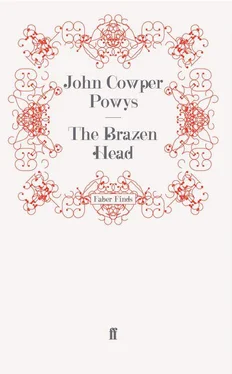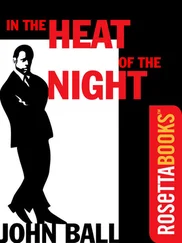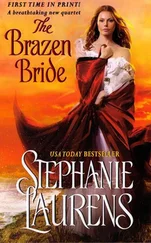And then, without any warning at all, a startling hullabaloo rose widely into the air from the men they were following; and a wild medley of sounds made up of cries, shouts, screams, howls, appeals, threats, curses, surged tumultuously through the forest.
“Come on, for heaven’s sake!” gasped young John, brandishing his blazing torch in one hand and his grotesque axe at the end of a pole in the other, and rushing headlong towards the tumult. What they saw when they arrived was the towering figure of Peleg the Mongolian, swinging his terrifying mace with its orbicular head of iron spikes, but himself in evident danger of his life.
John shuddered when he saw what was threatening this strongest of all the supporters of his parents. For two of the Lost Towers men, each of them with one of his knees on the ground while on the other he balanced the end of his bow, were shooting arrow after arrow at him; and already the head-feathers of two arrows were sticking out of his left shoulder.
Luckily for Peleg he was wearing about his shoulders a thick leathery scarf, and so, though the points of the arrows entered his flesh and stuck there, they did not really seriously wound him. Of our three friends young John with his funny-looking weapon and his torch was in front, and queerly enough it was the humpty-dumpty figure of Clamp that was a close second, while Colin, the long-legged, flipperty-flappity antic, made a poor third. This happened, either because, in spite of all his zest for life, Colin was scared of facing the arrows of that dangerous pair, or because — but these secrets belong to those interior thoughts about which not even the boldest historian dares to be dogmatic — if he’d been in front of Clamp, he’d have missed the exquisitely comical sight of the heroic spurt in which that grim little stoic indulged himself at the final lap.
But suddenly, as young John had often in his short life noticed before, but had put it down to the spiritual atmosphere of that particular district, and had even interpreted it to his brother Tilton as the influence of some quite definite “genius loci,” the whole situation reversed itself in an instant, and in a contagious rush of wild and desperate panic, the gang of bandits, with those two competent arrow-shooters taking the lead, fled as fast as it was possible for active outlaws to flee, in the general direction of Lost Towers. It was now revealed to John that Peleg with his mace had not been alone when the three of them had heard this unnatural noise in the forest and had hunted it down.
And what made the whole lot of the bandits scoot off in terror was not Peleg’s giant size nor his mace, but the sudden apparition, just to the left of those two kneeling bowmen, of what struck the whole lot of them as a Supernatural Being, possibly the Mother of God Herself, come to put an end to their nonsense.
It was Ghosta. But her black robe, and her white head-covering, and also, though it was too dark to see her features, her formidable dignity of movement, evoked, at that time of night, a spasm of awe that must have resembled the bewildered panic which some prowling rascal, up to no good, would have experienced had he drifted and loafed, without knowing in the least where he was going, along a cemetery path leading to the particular tomb out of which, at the very moment he arrived, Lazarus was being called forth from the dead.
The terror produced by the appearance of Ghosta was of course accentuated by her own powerful spirit. Tough nerves and thick skins and simple minds are sometimes dominated quite unexpectedly by a particular type of formidable intelligence, an intelligence which may easily strike those affected by it as supernatural, whereas in reality it may only be the power of an inspired personality.
Young John himself was affected by the apparition of Ghosta. His heart glowed within him, as, panting for breath after his run and waving his torch in a vigorous boyish manner, he stood staring at the Brazen Head which itself at that moment in the torch-light looked quite as indifferent to all outward events as Clamp himself, whose eyes kept turning heavily from the arrows in Peleg’s shoulder to Ghosta’s black robe, as if both these noticeable things had only been door-handles needing professional attention.
At any rate when Ghosta, who held a small lantern in her hand, came forward and moved straight to her gigantic Mongolian friend, it was not only those two arrow-shooters, both of whom leapt to their feet in consternation, who bolted in desperate panic, but every man-jack of that whole Lost Towers crowd.
Down on the earth fell the Brazen Head along with the poles on which it was carried and the cords by which it was tied, and a strange and sudden silence fell on the whole forest. Ghosta must have already seen young John and his friends approaching, but she did not even look round as they drew near. She had gone straight up to Peleg; and by the time John was at their side she had pulled out both the arrows which indeed the young man had already surmised must have left only shallow flesh-wounds, and was already bandaging the bleeding places with strips of white linen.
Did she always carry about with her, the young man wondered, these useful medicaments, or had she torn them from her own garments as she approached the scene?
The interest of both Colin and Clamp was concentrated on the Brazen Head upon which John’s torch, though only held mechanically in his hand, now flung a direct blaze of light. The violent jolt with which the Head had been dropped, in the supernatural panic produced by Ghosta’s appearance, had flung it clear of the poles and had dislodged from its shoulders one of the two ropes, that bound it.
The blaze of torch-light now flung upon its indefinitely moulded features gave it a most extraordinary expression. Its gaze was fixed upon Something. But upon what? That was the question which the airy Colin, as he whirled about it in protracted circle after circle, turning, so to speak, on his own axis, as he made of it a sort of cosmogonic axis for his saraband, and the round-bellied Clamp as he picked up a broken segment of rotten wood from the ground and leant on it, pressing his chin into the moss that covered its natural handle, might well have both been pondering, for they were obviously magnetized as they stared at it, to what degree it actually had been endowed with consciousness.
Its features had been so mistily and vaguely indicated by its human creator that it would have been as impossible for the most inquisitive scrutinizer to make out any expression at all. They seemed to have been arranged by their designer to prevent the possibility of their being used as a medium for any one single human emotion.
The contemplation of them always gave young John the feeling that he was surveying a wide-spread landscape from the top of a mountain. But the Head’s eyes were undeniably gazing at something. Was this something a completely different world from the one out of whose elements its human creator had fashioned it, a different world in fact from the one with which we are all familiar?
Ever since the flight of that riotous Lost Towers band it had struck both the mind and the senses of our friend John that a strange silence had fallen upon the whole forest. Was this in fact due, John asked himself, to some real mental gesture of the Brazen Head?
Was it possible that, in creating this automatic Being, Friar Bacon had really created a living actual mind different altogether from all the minds so far created by the natural processes of life and nature? If this was possible, if in fact this is exactly what had happened, might it not be, John couldn’t help wondering, that the activity of a mind, whose power of thought was completely different from any mind that has ever existed in the world before, might have such a formidable effect upon the mysterious galvanic forces that constitute the motions of the universe that a definite change would soon become evident not only in every star and planet in the firmament but in every living creature, however small and helpless, in our own immediate earth?
Читать дальше











